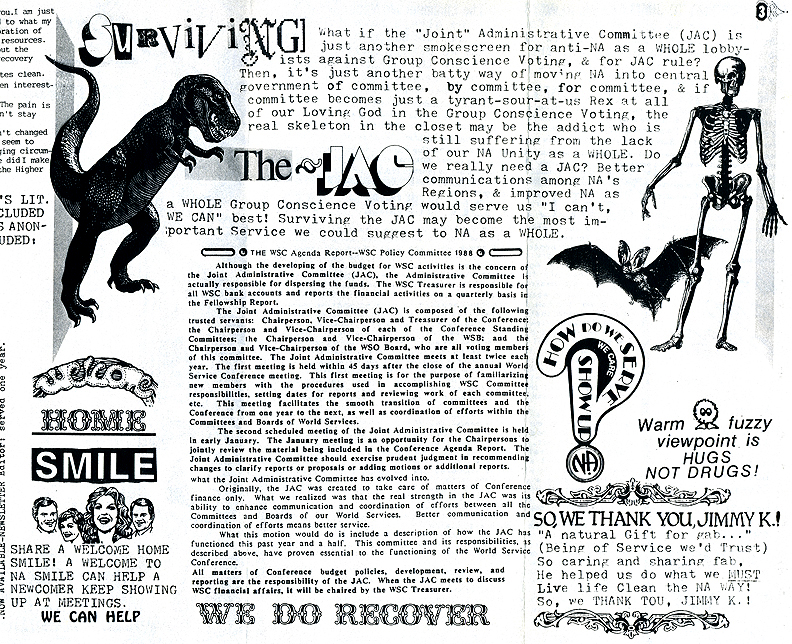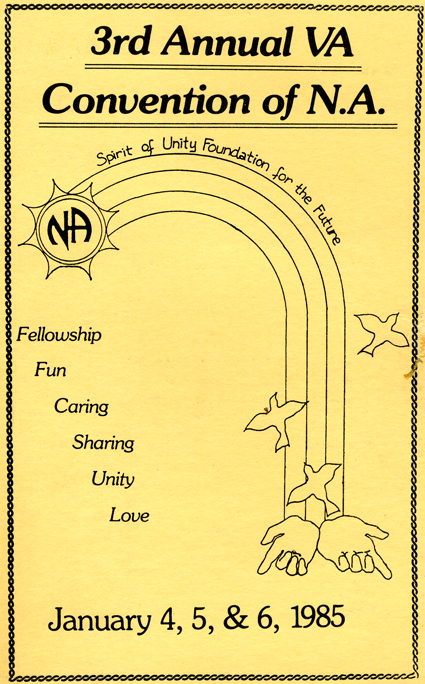
My friend convinced me to join hundreds of bicyclists riding to fight AIDS. I had changed cities for my writing career, but each time I would sit down to write, I would get drawn into the chat rooms, looking for my next hookup. I got my own apartment, a car and a job, so the acting out opportunities increased. I was bringing strangers into my friend’s apartment and having unprotected sex with them in his bed. After I finally got the internet hooked up to my computer, the acting out resumed with a vengeance. I had relief from acting out for the first time in years. I did not act out and I had no desire to. The first week after I arrived was amazing. It is not lost on me that my massage therapist helped me drive halfway across the country to my new home. It was a fresh start, and I swore that I was going to change and I would never act out again. It was around that time that I decided to move to another city. Even with a therapist who specialized in sex addiction, I could not stop. The therapist asked me not to masturbate for a week, and I thought I was going to die. It was good to know these things about my addiction, but the behavior did not stop. He advised me not to go to SCA because “they just hook up there.” He also helped me identify that I had been sexualized as early as fourth grade by a neighborhood friend who had been molested by an older cousin. I saw this addiction therapist for a few months, and he did confirm that he thought I was a sex addict. He said he had a friend who worked with sex addicts and gave me his number. One acting out partner was a doctor and I told him that I was a sex addict. I would go to the gym on my lunch break to have sex in the steam room. With him out of the picture, I started going to the bathhouse and hiring massage therapists. I was heartbroken, but I knew of no other way because I did not want to hurt him. I created a huge fight with my boyfriend and broke up with him. As I read the stories, I knew I was a sex addict. I bought the book and secretly read it on my way to work. One day I went to the neighborhood book store and I was intriguing with a cute guy, and as I walked past him, I saw a sign with the words I had heard used about Bill Clinton, “Sex Addiction.” And in that section there was a book called “Don’t Call It Love” by Dr. Afterwards, I would feel such shame and guilt, and I swore I would never do it again. My boyfriend and I had a little apartment, and I began hooking up with guys when he would go to work despite the high risk.

This new thing called the internet kicked my sexual compulsion into high speed. It was at that point that I started hanging out in the wet area of the gym, and it was not long after that I was introduced to chat rooms online. Then one day at the gym I had sex with a stranger in the steam room. When we first got together we decided to be monogamous and I was completely in love. It was then that I first heard the words “sex addict.” At the time I was in a relationship with a man who I thought was the love of my life.

#Sex addicts anonymous meetings new york city professional
With a legacy that began in 1949 and includes the 1982 founding of the Betty Ford Center, the Foundation today is committed to diversity, equity and inclusion in its services and throughout the organization, which also encompasses a graduate school of addiction studies, a publishing division, an addiction research center, recovery advocacy and thought leadership, professional and medical education programs, school-based prevention resources and a specialized program for children who grow up in families with addiction.I remember when Bill Clinton was being impeached and people could not figure out why he would do such a stupid thing as to have sex with an intern and ruin everything he had worked for. Through charitable support and a commitment to innovation, the Foundation is able to continually enhance care, research, programs and services, and help more people. As the nation's leading nonprofit provider of comprehensive inpatient and outpatient addiction and mental health care for adults and youth, the Foundation has treatment centers and telehealth services nationwide as well as a network of collaborators throughout health care. The Hazelden Betty Ford Foundation is a force of healing and hope for individuals, families and communities affected by addiction to alcohol and other drugs.


 0 kommentar(er)
0 kommentar(er)
